Mental Growth
Mental growth refers to the development and maturation of cognitive abilities, including thinking, reasoning, problem-solving, and decision-making. It encompasses the growth of the brain and the acquisition of knowledge and skills.
Factors Affecting Mental Growth
- Genetics: Genetic factors play a significant role in determining an individual's cognitive abilities and potential for mental growth.
- Environment: The quality of the environment, including access to education, resources, and environmental stimulation, can significantly impact mental growth.
- Nutrition: Proper nutrition is essential for brain development and mental growth, especially during early childhood.
- Stimulation: Mental growth is influenced by exposure to diverse experiences, stimulating activities, and opportunities for learning.
- Social Interaction: Interactions with peers, family members, and educators can contribute to mental growth through social and emotional learning.
Stages of Mental Growth
Mental growth occurs throughout life, but there are key stages that mark significant cognitive development:
- Early Childhood: During this stage, children rapidly develop language skills, basic mathematical understanding, and foundational cognitive abilities.
- Adolescence: The teenage years are marked by increased abstract thinking, moral development, and the refinement of problem-solving skills.
- Adulthood: Mental growth continues in adulthood, with the potential for continued learning, skill acquisition, and the development of expertise in specific areas.
Study Guide
When studying mental growth, consider the following key concepts:
- Neuroplasticity: The brain's ability to reorganize and form new neural connections based on experience and learning.
- Cognitive Development Theories: Explore theories such as Piaget's stages of cognitive development and Vygotsky's sociocultural theory to understand how mental growth occurs.
- Impact of Environment: Investigate how environmental factors, including socioeconomic status and access to education, influence mental growth.
- Brain Development: Understand the role of early childhood experiences and nutrition in shaping brain development and mental growth.
- Intelligence and Giftedness: Examine different perspectives on intelligence and the identification of gifted individuals, considering factors beyond traditional IQ measures.
By exploring these concepts and factors, one can gain a deeper understanding of mental growth and its significance in human development.
.◂Science Worksheets and Study Guides Second Grade. The sun and earth
Study Guide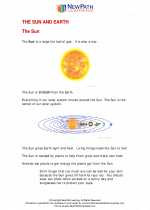 The sun and earth
The sun and earth  Activity Lesson
Activity Lesson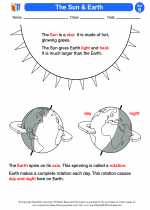 The Sun & Earth
The Sun & Earth  Worksheet/Answer key
Worksheet/Answer key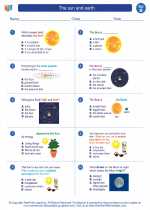 The sun and earth
The sun and earth  Worksheet/Answer key
Worksheet/Answer key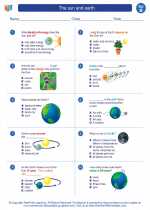 The sun and earth
The sun and earth  Worksheet/Answer key
Worksheet/Answer key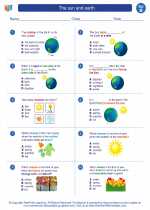 The sun and earth
The sun and earth  Worksheet/Answer key
Worksheet/Answer key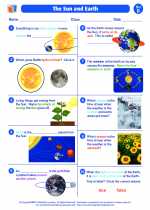 The Sun and Earth
The Sun and Earth  Vocabulary/Answer key
Vocabulary/Answer key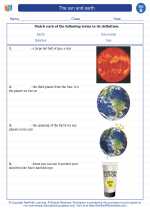 The sun and earth
The sun and earth 

 Activity Lesson
Activity Lesson
 Worksheet/Answer key
Worksheet/Answer key
 Worksheet/Answer key
Worksheet/Answer key
 Worksheet/Answer key
Worksheet/Answer key
 Worksheet/Answer key
Worksheet/Answer key
 Vocabulary/Answer key
Vocabulary/Answer key

The resources above cover the following skills:
Concepts of Earth Science: A student should understand and be able to apply the concepts, processes, theories, models, evidence, and systems of earth and space sciences. A student who meets the content standard should:
Develop an understanding of the cyclical changes controlled by energy from the sun and by Earth's position and motion in our solar system.